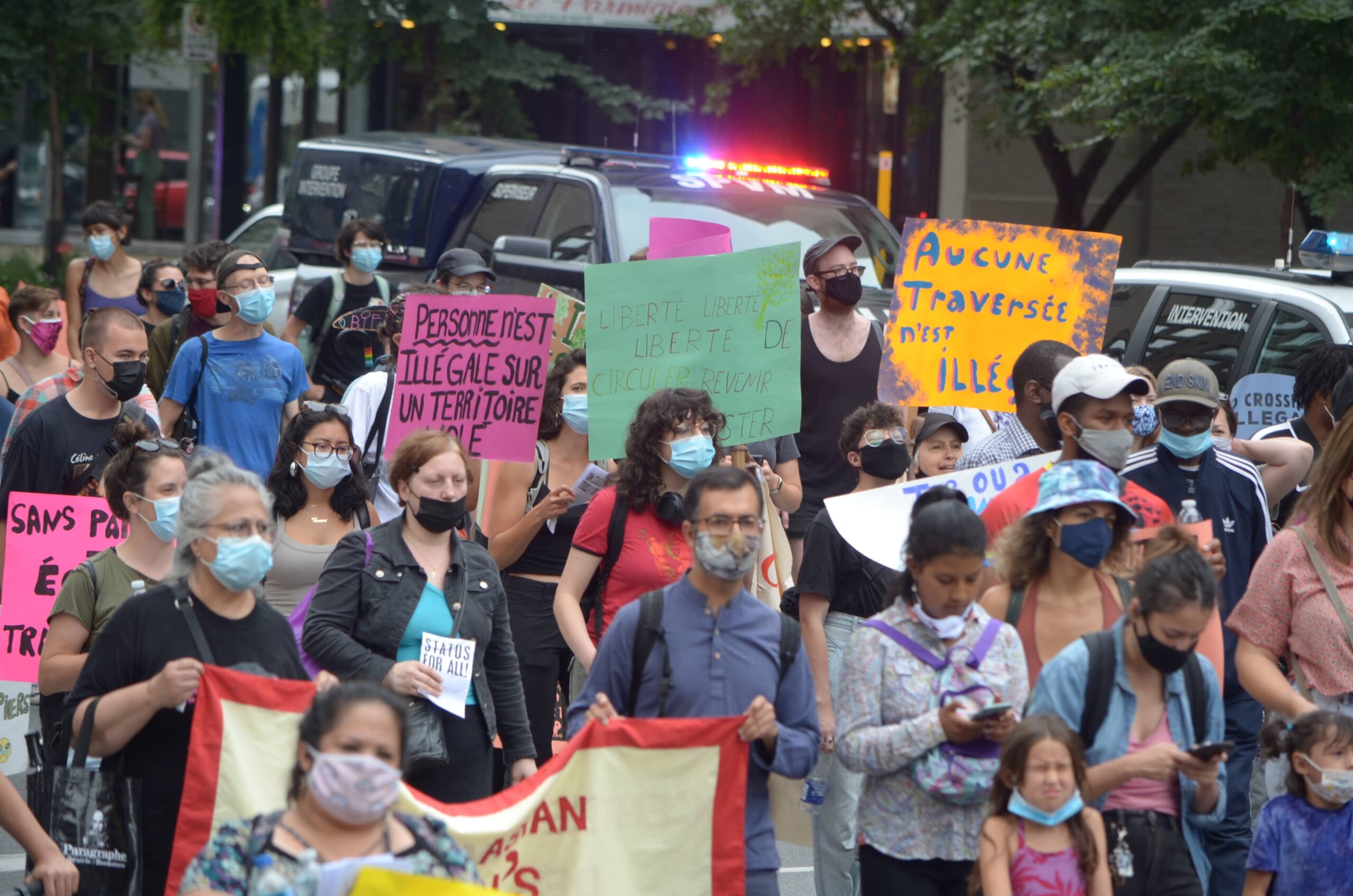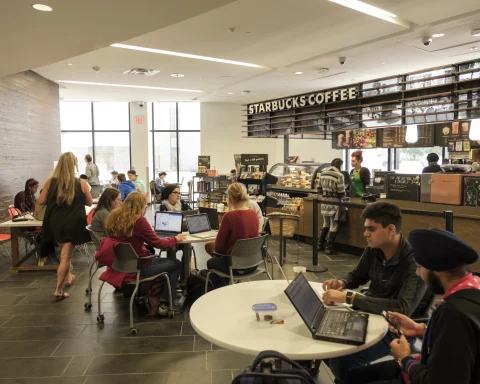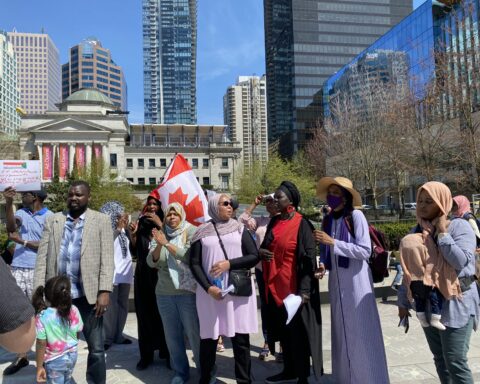Activists from the Migrant Rights Network (MRN) say a “secretive policy shift” may be brewing at Immigration, Refugee and Citizenship Canada (IRCC) which may explain the unprecedented rate of rejections of permanent residence applications on Humanitarian and Compassionate grounds.
Richard Goldman, a lawyer at Montreal City Mission, believes that some policy change may have occurred, but whether this involves the personnel assessing the applications, the training of these personnel or an internal directive is unknown.
“The Humanitarian and Compassionate application system is broken,” says Syed Hussan, who works with the Migrant Rights Network (MRN) secretariat, which organized marches in Montreal and Ottawa this past weekend to demand the government extend residency status to all migrants in order to ensure their equal access to rights. “And as the data we released is showing, it can arbitrarily be changed without oversight or accountability.”
Currently, over 1.6 million people are living in Canada without permanent status. They include undocumented people who live in constant fear of detention and deportation while struggling to find jobs with decent pay and working conditions, access basic health care, or reunite with loved ones.
Undocumented migrants and asylum seekers whose permanent residency applications have been rejected often turn to the Humanitarian and Compassionate pathway (H&C) as a last resort. However, the application is expensive and difficult to navigate, and applicants still run the risk of being deported during the process.
According to MRN, from 2016 to 2019, the H&C acceptance rate averaged 64 per cent. Rejections increased to 42 per cent in 2020, doubling to nearly 70 per cent in the first quarter of 2021, according to IRCC numbers revealed by MRN at a press conference earlier this month.
The numbers: Humanitarian and Compassionate applications received by the IRCC
| 2016 | 2017 | 2018 | 2019 | 2020 | Jan – Mar 2021 | |
| Accepted | 4,325 | 4115 | 4,340 | 5,075 | 3,735 | 1,265 |
| Rejected | 2495 | 2,845 | 2,405 | 2,760 | 5,000 | 2,915 |
| Applied | 8,045 | 7,390 | 9,135 | 10,600 | 11,105 | 8,970 |
| Acceptance Rate | 63.42% | 59.12% | 64.34% | 64.77% | 42.76% | 30.26% |
| Rejection Rate | 36.58% | 40.88% | 35.66% | 35.23% | 57.24% | 69.74% |
Note on source : data from the IRCC provided to the Migrant Justice Network by Jenny Kwan, the immigration affairs critic of the New Democratic Party (NDP), through an access to information request.
In a response to Radio-Canada, the IRCC insists the numbers have not changed. Expecting the refusal rate to eventually stabilize, it blames administrative delays resulting from the pandemic which have slowed down other immigration applications over the past year.
Migrant justice advocates argue that this cannot be the case. Based on statistics of applications received by the IRCC, the ratio of applications processed by immigration officers during the COVID-19 pandemic mirrors that of pre-pandemic times. They have nevertheless rejected a much higher proportion of applications since 2020.
The IRCC did not respond to NCM’s request for comment.
Although immigration officials introduced new “pathways” to permanent residence during the pandemic, critics say they are inadequate as they favour certain groups — students or professionals from high-income backgrounds — over racialized and low-income migrants.
“What we’ve seen is a series of very piecemeal announcements that are short-lived, and…it is primarily working-class and racialized people who are the most excluded,” says Hussan.
He emphasizes that although the pandemic has highlighted Canada’s need for immigration, with the government struggling to meet its own targets, undocumented people, many of whom are already living and working in Canada, have been neglected.
An Immigration Pathway of Last Resort
In contrast to a refugee claim — centred around the threat of persecution in one’s country of origin — the H&C application requires a demonstration of the hardship that would be faced if someone were to leave Canada.
The definition of hardship, however, is unclear. Goldman explains that Article 25 of the Immigration and Refugee Protection Act is based on sufficient “humanitarian considerations” toward granting permanent residence. “You couldn’t get much broader or vaguer than that,” he says.
It has been left to the courts to define this further. In 2015, the Supreme Court rejected the IRCC’s requirement to consider only applications that demonstrated hardship that was “excessive and unusual,” subsequently creating additional parameters around what constitutes a reasonable decision.
Yet, as IRCC officers have inordinate discretion over H&C cases, the process remains extremely subjective. Appealing a rejected H&C decision is also more difficult than appealing refused asylum claims because the burden is on the applicant to prove that the officer’s decision was “unreasonable” rather than simply “wrong” based on the facts of the case.
Unfathomable Rejections
The H&C application states a list of factors that could constitute hardship including discrimination in the country of origin and substantial ties to Canada such as personal relationships, volunteer work or employment. Notably, it claims to be the only application that considers the best interests of the child.
Yet, migrants meeting these criteria are routinely rejected.
Laura Lopez, a 35-year-old construction worker and mother of two, has been in Canada for almost seven years with her partner. They have spent a lot of money trying to secure permanent residence, but have twice been the victims of fraudsters. Her older daughter was very young when they arrived in Canada. She is scared at the thought of having to go to school in Spanish if they were to return to Mexico. Lopez and her partner regularly volunteer in different community centres. Their application was nevertheless rejected last year. Lopez is still waiting to hear why.
Devine Cruz is a 42-year-old single mom with two children living in Vancouver. Her 18-month-old, born in Canada, is a Canadian citizen. Cruz came to Canada from Hong Kong as a domestic caregiver with her employers on what she believed was a one-week vacation, but they never went back. Once in Canada, her employers stopped paying her and she would sometimes work up to 18 hours a day. After her visitor visa expired, she applied for temporary residence three times, all unsuccessful. She then applied for permanent residence through the H&C, but was rejected last month. Her request for reconsideration was also denied. Thanks to community support, Cruz now has a new lawyer and an upcoming court hearing to request a new IRCC officer to review her case.
“This is my last chance,” she says. “I’m very afraid to go back to the Philippines because my father was murdered and I got shot. And it’s very hard to find a job there. But now I’m scared, not only for myself but for my 18-month-old baby. I do not have medical insurance. Most importantly, I cannot earn a living for myself and for my son because I’m not allowed to find a job.”
Mamadou Batchily came to Canada in search of protection. Born into a deeply religious Muslim family in Mali, his father did not approve of his marriage to a Christian woman. “My parents wanted to kill me to preserve their image in the eyes of the community,” says Batchily.
After a failed asylum claim, he tried the H&C route but was rejected.
Soon after, a machine crushed his lower legs during a shift at a factory associated with a famous bakery chain in Quebec. He underwent several surgeries at different hospitals over an eight-month period. Medical staff testified to support his H&C application. Despite this, his claims have been systematically refused.
Batchily can no longer work and suffers constant pain. His wife and two children are still in Mali, but without permanent status, he cannot sponsor them.
“I never thought that Canada would treat people in such a way,” says Batchily. “When it comes to people who have suffered severe accidents, I believe that those who are studying our files should try to see the human side of things. It’s the most important element.”
Ottawa March
During Sunday’s march in Ottawa, hundreds of people from all sectors stood in solidarity demanding status for all, including migrants bussed in from across the country by MRN, which provided transport and accommodation for those wanting to attend.
“This isn’t about giving people a gift for [their] hard work,” says Hussan. “It’s about ensuring everyone in the country has the same rights and the same protection. It’s not about special treatment. It’s about equality.”
Asked what he expected from the marches, Batchily, also a member of Solidarity Across Borders, said, “I cannot say that I’ve lost hope, but all action, all struggle, bears fruit. Speaking up will make people understand what is really happening.”
Daniela Cohen is a freelance journalist and writer of South African origin currently based in Vancouver, B.C. Her work has been published in the Canadian Immigrant, The/La Source Newspaper, the African blog, ZEKE magazine, eJewish Philanthropy, and Living Hyphen. Daniela's particular areas of interest are migration, justice, equity, diversity and inclusion. She is also the co-founder of Identity Pages, a youth writing mentorship program.
Having worked for a couple of years in the non-profit sector in Manila,
Christopher has written about aid and international development, human rights, immigration and armed conflict in diverse contexts. He is a member of the NCM-CAJ Collective and works as a freelance journalist.






